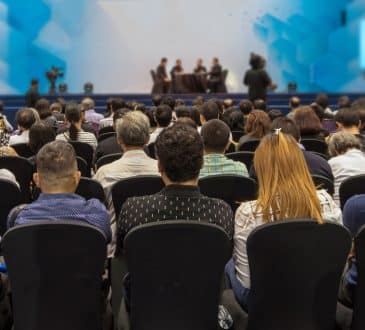Building trust in your team in an age of disruption?

The age of disruption may be characterised as an environment that is fast paced, uncertain and risky. This new environment emerged from globalisation, aided by technology and trade interconnectivity, whilst facilitated by social media and the internet. A simple presidential tweet, or small change in a trade war is now transmitted instantly around the world, without necessarily any verification, analysis or investigation. This unfiltered and immediate nature of information may contribute to instability and confusion for staff and stakeholders. Leaders may not be able to control the external environment, yet through explanation, influence and engagement leaders may be able to effectively reduce stress and worry in their teams that results from disruption.
Leadership is the influence over a team that can generate a willingness or inspiration to follow. Staff do not automatically listen and follow leaders irrespective of the environment, as they need trust as a precursor. Communication effectiveness is inhibited if there is low trust in leaders, so messages containing information may not be heard nor believed when distrust presents. It has long been recognised that trust is an element of leadership, where recent research now indicates that trust is also closely related to organisational change success. In a future disruption environment change is likely to be constant and the need for trust is heightened, so future leaders will likely require excellent skills in communicating, explaining and involving staff in associated change.
Leaders set strategy, direction and plans in order to inform and influence their teams of the direction that they wish to take the organisation. The strategy and planning process is designed to signal a way forward, provide context and alignment across a whole array of staff and stakeholders. New data and information may emerge quickly, where full authenticity and certainty is unlikely to be present as a disruption emerges. Leaders will be under pressure to react to new advances, new information or developments, where there is a high prospect of leaders regularly reversing and overriding past decisions. Reacting quickly may be just as risky as delaying decisions in disruption and the competition may react before accurate information or analysis emerges.
The changing nature of disruption creates new challenges as leaders will continue to attempt to build trust by delivering on past promises despite the change around them. Organisations will find it impossible to move forward if the leader is not able to ensure that they are believable and worth following. Imagine if a leader offers a pay rise, to only one week later discover that their cost of inputs has been altered significantly by a new unpredicted tariff that leads to the business unprofitable going forward. Imagine a leader that has announced a new acquisition based on due diligence and past profits, where that leader soon discovers that a new technology or robot has completely eliminated the business value. There will be high likelihood of sudden change altering direction regularly so leaders of the future will need to explain changes, risk and uncertainty with their teams in order to prepare for disruption.
In an uncertain environment, leaders will need to explain the fast pace, the uncertainty and risk regularly, failure to do this adequately will likely lead to staff confusion, or blame toward the leader for not controlling the situation. Staff will appreciate regular and open communication on disruption, even when they do not like the described environment. Communication is such an important part of leadership, a factor that is likely to be more important with constant change, so the new leader will need to be cognisant of various communication forms, language styles, formats and regularity. Leadership communication may even be so regular that staff may be included as partners or advisors, rather than merely as subordinates. Leaders will require efficient, effective and regular communication in order to build trust, those unable or unwilling to operate this way may fail to move an organisation forward with the speed required. The leader of the future will likely be comfortable in explaining the new environment and changes, whilst building teams that are resilient to multiple options and decisions despite any ongoing risk or uncertainty.
Have you read?
The World’s Safest Cities Ranking, 2019.
The Best Hotels In New Delhi For Business Travelers, 2019.
Best CEOs In The World 2019: Most Influential Chief Executives.
Countries With The Best Quality of Life, 2019.
Bring the best of the CEOWORLD magazine's global journalism to audiences in the United States and around the world. - Add CEOWORLD magazine to your Google News feed.
Follow CEOWORLD magazine headlines on: Google News, LinkedIn, Twitter, and Facebook.
Copyright 2025 The CEOWORLD magazine. All rights reserved. This material (and any extract from it) must not be copied, redistributed or placed on any website, without CEOWORLD magazine' prior written consent. For media queries, please contact: info@ceoworld.biz











